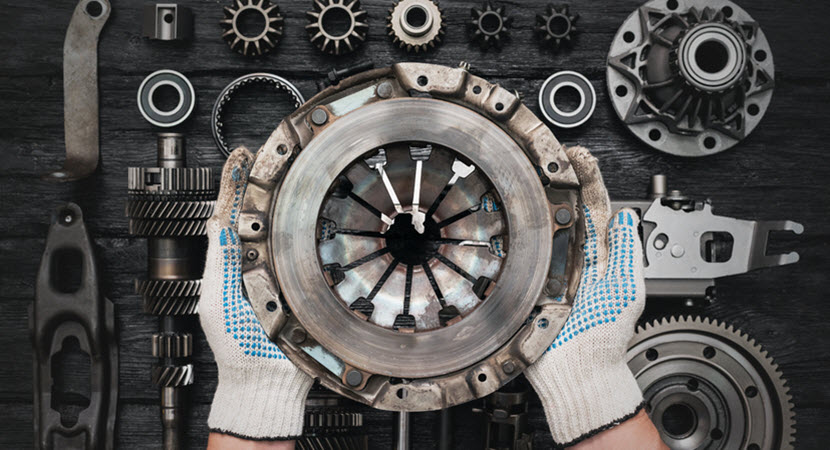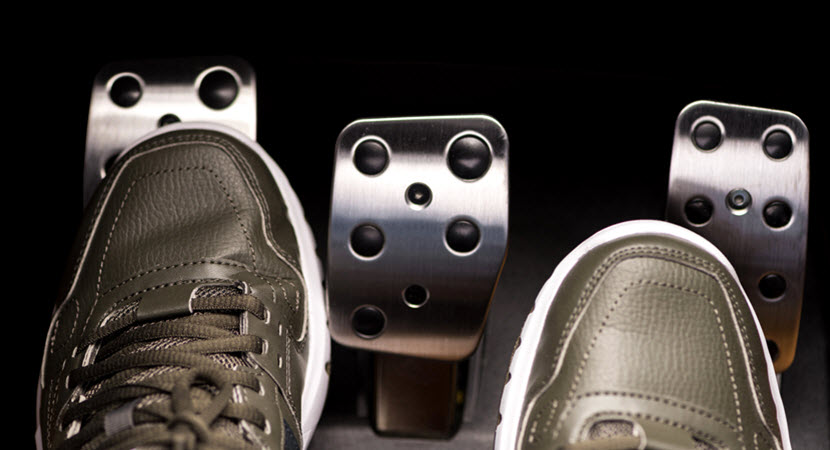Your BMW’s clutch is what allows you to shift gears. The clutch does this by briefly disconnecting the engine from the wheels while the gears are changed. After a successful gear shift, the clutch reconnects them, resulting in increased power and speed.
As a BMW owner and driver, you must be able to identify the signs and symptoms of a malfunctioning clutch system so that you can take preventative steps as soon as possible. Waiting too long can simply make the situation worse. Let’s examine the function of the clutch, the symptoms of a faulty clutch, and what could cause the clutch to fail.
The Function of the Clutch
A clutch is a mechanical device that engages and disengages a transmission between numerous rotating shafts in a car or other mechanical components. The clutch plate, pressure plate, and flywheel are the clutch’s three main components.
When the clutch is engaged (the foot is taken off the pedal), the clutch’s springs force these three elements together, connecting the engine and gearbox and spinning at the same speed. When you press down on the clutch pedal, however, the springs pull the pressure plate away from the clutch plate, allowing you to smoothly change gears by allowing the flywheel and pressure plate to spin at separate speeds.
Symptoms of Clutch Failure
Clutch Noises
Any sounds heard when shifting gears should be regarded as a symptom of a problem anywhere within the clutch assembly. Grinding and squealing noises are common indicators of a clutch problem, and they usually signal the need for service.
Gear Shifting Difficulties
As the gearbox is engaged in the gear-shifting process and is closely tied to transmission operation, gear-shifting issues are typical when the clutch isn’t operating properly. You may experience difficulty shifting into the proper gear, or the clutch may slide, reducing your car’s ability to speed briefly.
Wear and Tear
Your BMW’s components will gradually deteriorate over time and with continuous use. Burn-out, or clutch failure, is a common occurrence in high-performance and luxury vehicles.
BMW drivers can override or overuse the clutch to achieve optimum performance from their vehicles. While this may provide an exciting driving experience, it is detrimental to the clutch assembly’s longevity. This may necessitate pricey maintenance and repairs.
Causes of Clutch Failure
- Bad Pressure Plate: The pressure plate, being the essential component that compresses the clutch disc to the flywheel when the clutch is engaged, is subjected to extreme heat and friction. Unnecessarily pushing the clutch pedal can cause heat to build up, lowering the necessary friction and eventually damaging the pressure plate.
- Slipping Clutch: When you push the clutch pedal, it pulls the clutch disc away from the flywheel, allowing your automobile to change gears. The clutch disc will begin to wear down and not properly engage with the flywheel and pressure plate if the pedal is repeatedly pressed or if you routinely overload your vehicle.
- Stretched Clutch Cable: The clutch cable must push on the release fork in order for the throw-out bearing to engage. If the cable snaps or gets too stretched to apply any force on the release fork, your BMW will not be able to shift gears. These wires will wear out prematurely if you constantly push and release the clutch pedal.
- Damaged Throw-out Bearing: When changing gears, the throw-out bearing, also known as a clutch-release bearing, must be in good operating order to disengage the engine from the gearbox. The throw-out bearings may be old or lose oil if you hear a squeaking or grinding noise when pushing the clutch pedal, or switching gears is difficult.

The Best Service for Your BMW
Clutch problems should never be overlooked because it makes driving strenuous and affects the overall performance of your BMW. This makes your driving unpredictable and can also be distracting, diverting your attention away from the road and toward gear changes, increasing the risk of an accident. It is excellent practice to respond to problems as soon as they are discovered. Dealing with the problem early on, before it worsens or has an influence on other systems, can save you money in the long term.
At Dieters Porsche and BMW Services, you get the best service for your BMW model. We help keep problems from spreading to the complex transmission system, which may be costly to fix. We service San Diego, Chula Vista, Coronado, Mission Valley, Point Loma, CA region, so give us a call today!


